NEWS
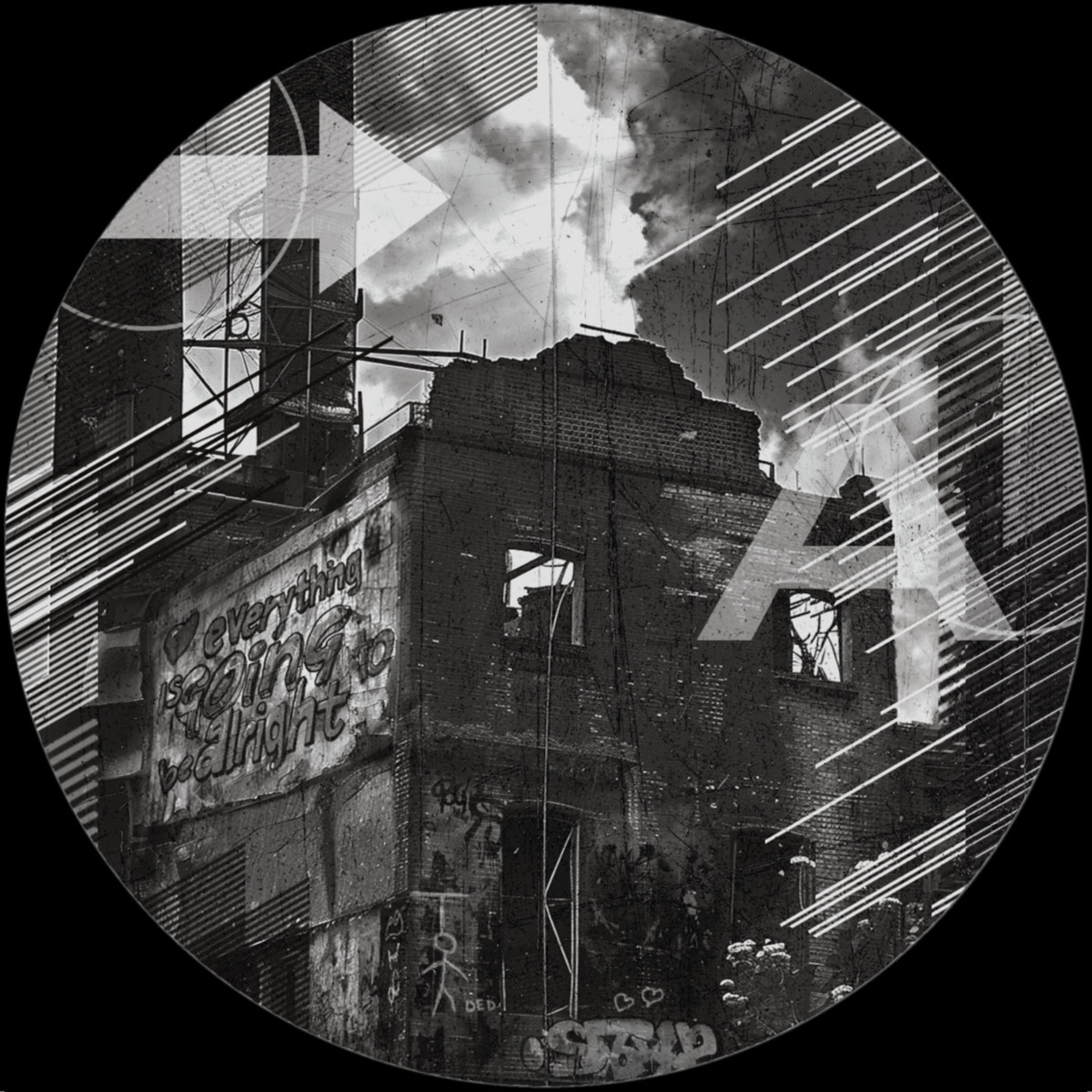
NEWS: In this section you find all the new releases - whether music or print - as they come out and/or are being listed in the shop.
This can include major re-stocks as well as older titles and second hand records or books. New titles are being added on a near-daily basis.

"Marxists envisage a total change in the basic structure of human relations. With that change our problems will not be solved overnight, but we will be able to tackle them with confidence. Such are the difficulties, contradictions, and antagonisms; and in the solution of them society moves forward and men and women feel they have a role in the development of their social surroundings. It is in this movement that we have the possibility of a good life." —C.L.R. James, from Modern Politics This volume provides a brilliant and accessible summation of the ideas of left Marxist giant C.L.R. James. Originally delivered in 1960 as a series of lectures in his native Trinidad, these writings powerfully display his wide-ranging erudition and enduring relevance. From his analysis of revolutionary history (from the Athenian City-States through the English Revolution, Russian Revolution, and the Hungarian Revolution of 1956), to the role of literature, art, and culture in society (from Charlie Chaplin to Pablo Picasso, via Camus and Eisenstein), to an interrogation of the ideas and philosophy of such thinkers as Rousseau, Lenin, and Trotsky, this is a magnificent tour de force from a critically engaged thinker at the height of his powers. An essential introduction to a body of work as necessary and illuminating for this century as it proved for the last. Praise: “When one looks back over the last twenty years to those men who were most far-sighted, who first began to tease out the muddle of ideology in our times, who were at the same time Marxists with a hard theoretical basis, and close students of society, humanists with a tremendous response to and understanding of human culture, Comrade James is one of the first one thinks of.” —E.P. Thompson “C.L.R. James is one of those rare individuals whom history proves right.” —Race Today "C.L.R. James has arguably had a greater influence on the underlying thinking of independence movements in the West Indies and Africa than any living man.” —Sunday Times “It remains remarkable how far ahead of his time he was on so many issues.” —New Society “C.L.R. James has a special place in the history of Third World revolutionary movements. He combines Caribbean nationalism, Black radicalism, a once Trotskyist blend of revolutionary anti-imperialism, and the European classic tradition in an individual and potent mix. A mine of richness and variety.” —Times Educational Supplement About C.L.R. James: In the West Indies, C.L.R. James is honored as one of the fathers of independence. In Britain he is feted as a historic pioneer of the black movement. He is generally regarded as one of the major figures in Pan-Africanism, and a leader in developing a current within Marxism that was democratic, revolutionary, and internationalist. His long life and impressive career played out in Trinidad, England, and America. For the last years of his life, he lived in south London and lectured widely on politics, Shakespeare, and other topics. He died there in 1989. About Noel Ignatiev (Introduction): Noel Ignatiev wrote How the Irish Became White, recently reissued as a Routledge Classic. He co-edited Race Traitor, and edited A New Notion: Two Works by C.L.R. James. He teaches at Massachusetts College of Art and Design. Product Details: Author: C.L.R. James with an introduction by Noel IgnatievPublisher: PM PressISBN: 978-1-60486-311-6Published: October 2013Format: PaperbackSize: 8.5 by 5.5Page count: 176 PagesSubjects: Political Science, History See and hear author interviews, book reviews, and other news on the Author's Page HERE and Noel IgnatievHERE

A Tribute To Guy Alfred Aldred. John Taylor Caldwell. Reprint of a pamphlet first published in 1966 to commemorate the 80th anniversary of Aldred’s birth. Reprinted in 1986 for the 100thanniversary. Once again for the 120th. Guy Alfred Aldred had worked ceaselessly at his propaganda, writing, publishing and public speaking, he took on injustices wherever he saw it. He had spoken at every May Day for 60 years except the years he spent in prison. He never once asked for a fee nor sought personal gain, throughout his 62 years of campaigning his principles never faltered.
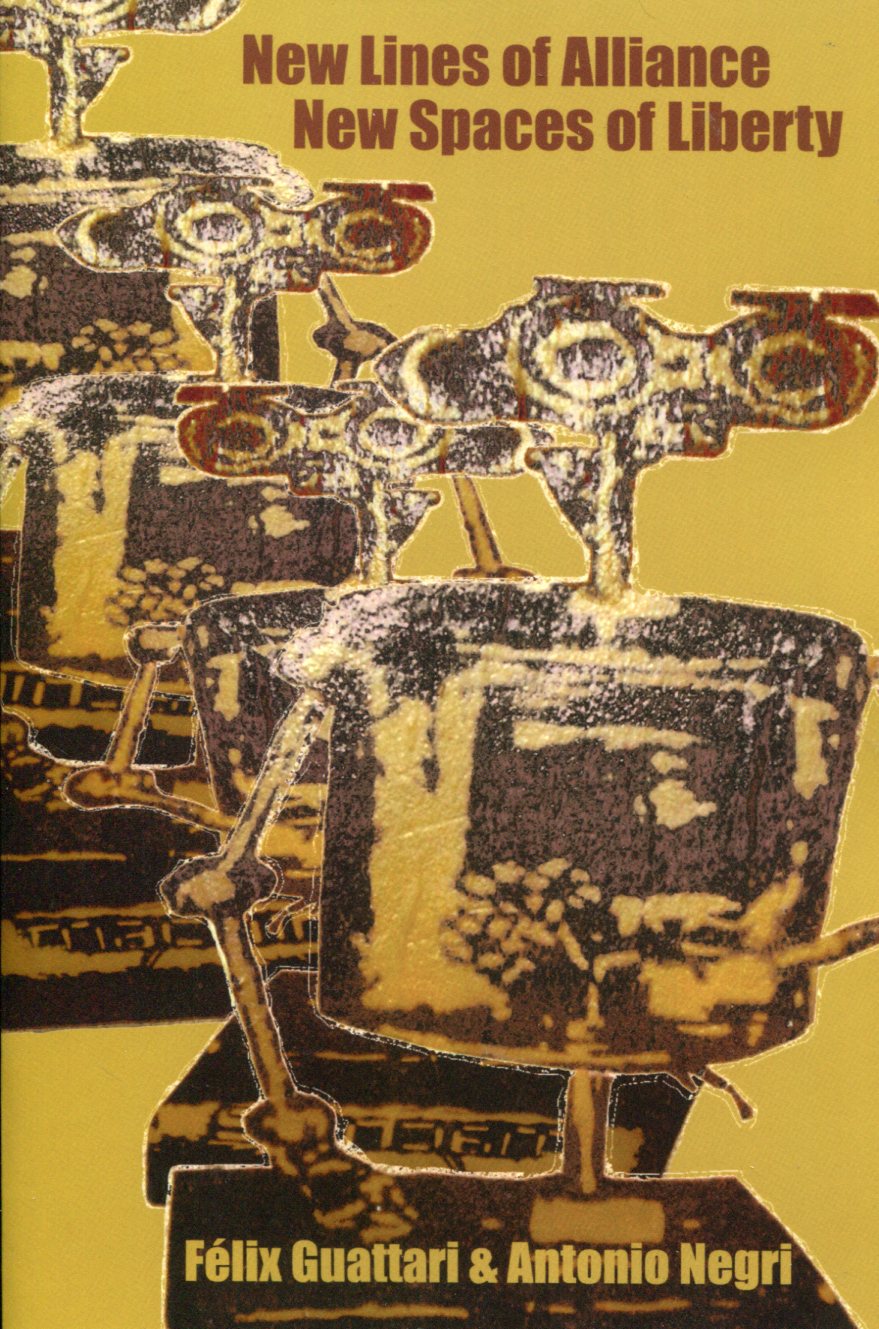
“The project: to rescue ‘communism’ from its own disrepute. Once invoked as the liberation of work through mankind’s collective creation, communism has instead stifled humanity. We who see in communism the liberation of both collective and individual possibilities must reverse that regimentation of thought and desire which terminates the individual….” Thus begins the extraordinary collaboration between Félix Guattari and Antonio Negri, written at dawn of the 1980s, in the wake of the crushing of the autonomous movements of the previous decade. Setting out Guattari and Negri diagnose with incisive prescience transformations of the global economy and theorize new forms of alliance and organization: mutant machines of subjectivation and social movement.Prefiguring his collaboration with Michael Hardt, Negri and Guattari enact a singular hybridization of political and philosophical traditions, brining together psychiatry, political analysis, semiotics, aesthetics, and philosophy. Against the workings of an increasingly integrated world capitalism, they raise the banners of singularity, autonomy, and freedom to search out new routes for subversion.This newly expanded edition includes previously untranslated materials and a new introduction by Matteo Mandarini.“After the highpoint of the subversive decade 1968-1977, Italian autonomist Marxism and French theory of desire meet at the intersection of two different methodologies of subjectivation. Social recomposition of the working class and molecular proliferation of desire merge, and together open a new space for theory and for social action. While the ideologies of the twentieth century are falling, Toni Negri and Félix Guattari trace the lines of a new vision of autonomy.” – Franco ‘Bifo’ Berardi
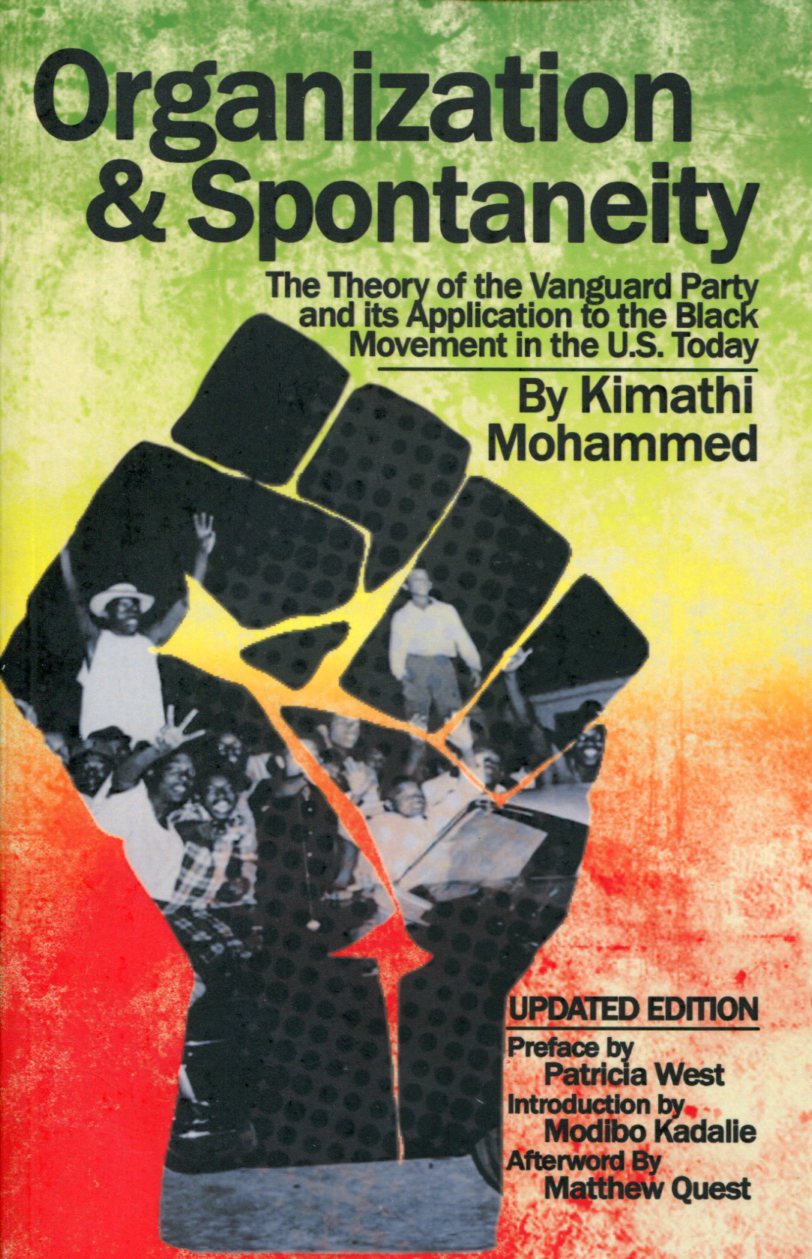
Kimathi Mohammed, a Michigan-based activist who was a native of Savannah, Georgia deserves to be recognized as among the most original political theorists of the Black Power movement in the United States. Organization & Spontaneity, originally published in 1974, was a response to key contradictions of the late 1960s and early-1970s Black freedom movement, manifested in the Black Panther Party and the League of Revolutionary Black Workers. In contrast to many political thinkers of the Civil Rights and Black Power era, Mohammed's work emphasized the self-organization of ordinary African Americans and their liberating, self-directed activism.Mohammed placed forward his critique of would-be Black vanguards at a time when most prominent Black Power activists—even the socialist advocates among them—were beginning to embrace electoral politics and systems of patronage which would ultimately suppress any independent Black political power.Organization & Spontaneity anticipated new obstacles in the Post-Civil Rights era, and continues to point the way out for our own place and time. This updated volume includes an additional essay by the author documenting CLR James's influence on the League of Revolutionary Black Workers, as well as a new introduction by Modibo Kadalie and an afterword by Matthew Quest.

On July 19th 1936, the Spanish generals rose against the people. The workers of Barcelona, under the leadership of the anarchists. succeeded in smashing the fascist rising within two and a half days. The anarchists did not want to conquer power for themselves, nor did the unions seek to establish a dictatorship. As in all other parts of Spain, an anti-fascist united front was formed. It ranged all the way from the various republican tendencies of the bourgeoisie to the most extreme tendencies of the proletariat - the anarchists. Naturally there was not complete harmony among the various tendencies composing the anti-fascist block, either with respect to aims or choice of means. Some wanted merely to smash the power of the generals and the clergy, but, otherwise maintain a bourgeois capitalist society; others sought a fundamental change in all phases of social life. High finance was on the side of the fascist generals. With the defeat of the generals, they lost their positions of power. The workers’ organisations assumed the functions of organising public life. The economic transformations took the form of socialisation. All big enterprises were either collectivised or socialised. The former owners of these big enterprises can offer no more resistance. However, the petty bourgeoisie, even though it did not have the strength to resist the new developments during the first months of proletarian victory, did not accept completely the new order.In the course of this development divergent trends began to appear. The masses of the workers were for the most part organised in the anarcho-syndicalist organisation. the CNT; the petty bourgeoisie, during the months that followed the 19th of July, affiliated itself with the UGT. Not only workers, but traders, owners of small shops, market salesmen, etc., joined the UGT. The developments in Spain took a course totally different from that of other countries. Forms of organisation arose, especially in Catalonia, which had been seen nowhere else. In all other European countries, especially in the democratic ones, the political parties form the currents of public life, but in Catalonia the trade unions have this function. This is due to the syndicalist character of the Spanish labour movement. In the spirit of these traditions, the petty bourgeoisie also organised themselves into trade unions.There is a fundamental difference in the workers’ organisation, the CNT, and that of the petty bourgeoisie, the UGT - in whose ranks workers have also been organised - both as to politics and as to their final goal. The UGT accepted collectivisation only under compulsion; they wanted nationalisation, that is, the power of control to lie in the hands of the state and the political parties represented in it rather than in the hands of the workers’ organisations. Friction arose, leading to collisions. Among the workers themselves, in the factories and in the management of enterprises, complete understanding and harmony reigned. Only in political questions did opinions differ.When the CNT entered the Catalan government on September 28th 1936, after the dissolution of the Anti-fascist Militia Committee which had been functioning for two and a half months, it took over, officially, the Department of Food Supplies. A central department for food supplies was created under the direction of the syndicalist Juan Domenech. He established an internal trade monopoly for the control of prices. The provisioning of food for the cities was to be taken over entirely by the unions of the transport workers and the various branches of the food industry, who were to substitute - in accordance with a special plan - for the big enterprise and the small traders who had controlled the food industry until then. The small traders became - as members of their unions - equal to the workers of town and country. Or, rather, they were supposed to become such. Continuous conflicts arose between the members of the CNT and those of the UGT, over ways and means of conducting the work. The conflicts created a scarcity of certain food articles. Things became more expensive; sharp political discussions arose as to their cause, and as to the value of the methods.Three months later, December 16th 1936, a new Catalan government had to be organised. This crisis was of a purely political character. The POUM, Workers Party of Marxist Union, was being viciously attacked by the leaders of the UGT, official communists for the most part. They declared the POUM, because of its Trotskyist tendency, a counter-revolutionary party. Soviet Russia herself, through her official representatives, took part in this campaign. The crisis was created in the Generality in order to remove the POUM, whose leader, Andres Nin, was Minister of Justice, from the government. The CNT was opposed to this political manoeuvre but, being in a minority in the coalition government, the POUM was expelled from the government.The dictatorial aims of the communists manifested themselves clearly in the new order. The communists had always been an unimportant minority in Catalonia, as well as in the rest of Spain. By a series of clever manoeuvres their influence increased in Catalonia. They united with the Socialist Party of Catalonia (PSUC), which joined the 3rd International. Although they called themselves socialists, they had the support of the communist organisations, and succeeded in winning the new party over to their line. To the communists of the PSUC the POUM signified a rival party that had to be eliminated from the scene. The Soviet Union strongly supported these manoeuvres. Some shipments of food arrived from the USSR. They also sent some armaments. The propaganda machine started using this support for their political purposes. The POUM began to lose their influence.The influence of the PSUC grew in proportion as that of the POUM declined. The differences between the two parties were extended into the UGT. The members of the POUM belonged to the UGT and even held a number of important positions there. The PSUC wanted to expel them from their posts. A bitter conflict began between the two Marxist brothers for control of the trade unions, a conflict such as is known only too well in many other countries. The political atmosphere among the anti-fascists in Catalonia became ever more unbearable.The CNT acted loyally toward the anti-fascist cause when the new government was formed. It wanted to stop fighting among the political parties. It made the proposal and succeeded in having it accepted, that trade unions, and not the political parties, should be represented in the new government. These trade unions were the CNT and the UGT. The Catalan Left, as a special expression of the Catalan Nation, and as partisans of the presidency, was also allowed to participate.To get the Ministry of Defence, until then in the hands of the Catalan Left, the CNT gave up the Department of Food Supplies to the UGT. Immediately after taking over the Department, Juan Comorera, the new Minister, erased, with one stroke of his pen, the entire work of his predecessor: the inner trade monopoly, the fixed prices for articles of food, was wiped out. Comorera’s aim was to break the power of the unions. He therefore wanted to turn over the function of supplying food to private companies. Thus small proprietors, petty traders and tenants were able to make greater profits through higher prices. The scarcity of bread became chronic. Things became more expensive and the masses more discontented. Economically, as well as politically, the fuel had been assembled, and demagogy helped set it alight.On October 22nd 1936, a pact was ratified, by the CNT-FAI on one side and the UGT-PSUC on the other. They agreed to a programme of minimum demands. Both organisations, especially the CNT, made concessions in the struggle against the rebel generals. The workers rejoiced over this pact, and a great mass meeting in the vast bullring of Barcelona, where all of the city workers were assembled, sealed it by acclamation.But there were those who still put their partisan interests above the interests of the proletariat as a whole. A campaign was begun against the CNT and the FAI of the same character as that employed against the POUM. The anarchists and syndicalists were held responsible for everything that did not function too smoothly. Even though the CNT-FAI gave up the idea of collectivisation in those sections where the small tenants were in a majority, and absolutely rejected the proposal for compulsory collectivisation, they continued to campaign against the CNT-FAI among the small tenants and peasants. They appealed to the property instinct, made the idea of collectivisation appear hostile to the lovers of property, and went so far as to denounce the advocates of collectivisation as enemies of the people.Such a malicious campaign had its effect. In January 1937, an insurrection arranged by the politicians broke out against the CNT-FAI in the town of Fatarella. The insurrection, as such, was unimportant; but it was symptomatic. Six months had passed since the victory over the fascists, six months of revolutionary development which led, and had to lead, towards socialisation. But certain parties wanted to reverse the trend of this development. They wanted a national war, not a social revolution. The slogan ’the war and the revolution’ for which the CNT-FAI stands, was opposed by the slogan of all the other political parties: ’First, we must win the war. Everything else, a new political order, establishment of social justice, etc., must be left untouched till the end of the war’.The conflicts became more intense. They wanted to manoeuvre the CNT-FAI out of their political positions. Blood flowed in Fatarella. Although both organisations issued a joint declaration regarding the events and their origin, the PSUC press continued its campaign of slander against responsible members of the CNT-FAI, ministers in the Generality, in connection with the outbreak. Certain elements of the Catalan Left and the Catalan Nationalists (Estat Catala) also joined in this insidious campaign.Grave discontent reigned among the workers. The revolutionary workers of Catalonia felt humiliated by the gradual curtailment of their revolutionary conquests after the 19th of July. The representatives of the CNT-FAI vigorously opposed the application of police measures to meet the discontent of the masses. The bourgeois elements, therefore, tried to remove the advocates of the syndicalists and the anarchists from their positions. The workers’ Patrols of Control, composed of those fighting elements who had smashed fascism in Catalonia on July 19th, had been functioning as anti-fascist guards, and were legalised as such. The majority of the members of these Patrols are members of the CNT, and when the UGT demanded equal representation with the CNT, to which they were obviously not entitled since they were not equal in membership in the region, bitter conflict sprang up again. The UGT members left the Patrols and devoted their attention to winning over the police to their side. Instead of building bridges of unity, they were widening the gulf that kept the proletariat separated.The communists and the elements of the Catalan Left, the Esquerra, started an intense propaganda among the existing police bodies: Assault Guards, Civil Guards and Catalan City Guards, a propaganda directed against all syndicalists and the anarchists. The latter had been demanding from the very beginning that the old police units be dissolved and replaced by a single body for public security. The other parties and organisations opposed it. Friction arose between the police and the workers’ Patrols. In some places fighting broke out resulting in a number of dead and wounded. The following is an example of the preparations being made by certain elements for a fratricidal war against the anarchists:On Friday March 5th 1937, a few individuals presented an order, signed by Vallejo, director of the arms factories, to the arsenal in Barcelona, to hand over to them ten armoured cars. The director of the arsenal found the document in order and delivered the cars. At the last moment doubts arose as to the authenticity of the order, and the director telephoned to Vallejo for verification. The document proved to be forged, but, in the meantime the armoured cars had been driven away. They were followed and observed to go into the Voroschilov Barracks, belonging to the PSUC, that is, the communists.Premier Tarradellas intervened. At first the barracks’ officer denied all knowledge of the deed. Only when threatened with a forced investigation of the barracks did they admit that the armoured cars were there.The purpose of thus stealing and hiding the armoured cars became more than clear to the people of Barcelona during the tragic May days.Premier Tarradellas issued a decree prohibiting the members of the various police bodies from joining any political parties or unions, which aroused great indignation among the workers. Special plenums of the CNT were held and the representatives of the CNT in the government were instructed to demand the annulment of the decree. At the same time the workers’ organisations of the CNT demanded the reform of the Department of Food Supplies and, therefore, the resignation of Comorera. A new crisis of the Generality was precipitated on March 27thThe solution to this crisis proved to be very difficult. The demands of the PSUC, hiding behind the UGT, became ever more arrogant. When, after a week of negotiations, a new programme for the government of the Generality had been agreed upon, the UGT broke it at the very last moment. Unity, so painfully achieved, was again spoiled. Companys, president of the Catalan Generality, created a provisional government with a peaceful coup d’etat. The syndicalists and anarchists would have been perfectly justified if they had rejected this arbitrary solution. They had proved their good will and patience; they could face public opinion; justice and sympathy were definitely with them. Yet, not to break the anti-fascist front, they swallowed this bitter pill too. On April 16th the crisis was finally solved, the CNT proving very compliant. They renounced their former demands, modified the desires of the proletariat by pointing out the necessities of the war against fascism, and urged them to concentrate their forces for the period after the defeat of the fascists.Comorera no longer headed the Department of Food Supplies, but the office itself remained in the hands of the UGT. The ministers of the CNT had also been changed. The syndicalists and the anarchists had done all they could to maintain the anti-fascist united front. They hoped that a new phase of development would begin now, a period of calm and relaxation behind the lines. False hopes.On April 25th, Roldan Cortada, prominent member of the PSUC was killed near Molins de Llobregat. With this lamentable act as a pretext, the PSUC tried, through their authority over the Public Forces, to take measures of repression against the sympathisers and members of the CNT and the FAI. And although they did not accuse us directly of having committed the attentat, they nevertheless tried, through their actions, to place the moral responsibility for the criminal attentat upon our organisations. Indignation spread over the entire province of Barcelona, both for the deed, and for the harsh measures of the police. The Director of Public Security, Rodriguez Salas, was responsible for these measures. His political career had been a varied one until then. He finally landed with the UGT. His actions against the CNT were considered as provocation’s. He had been conducting a struggle against the CNT for several months.A few days later the anarchist mayor of Puigcerda, Antonio Martin, and three of his comrades were shot. The members of the FAl became very indignant over the murder of their comrade, whom they all loved and respected as one of the best. Political tempers rose. The First of May was approaching. The negotiations between the CNT and the UGT for joint demonstrations failed, owing to the manoeuvres of the communists who controlled the UGT. Bitterness turned gradually into hate. Political passions dominated the scene.

The wave of political demonstrations since the Battle of Seattle in 2001 have crystallised a new trend in left-wing politics. Modern protest movements are grounding their actions in both Marxism and Anarchism, fighting for radical social change in terms that have nothing to do with the taking of state power. This is in clear opposition to the traditional Marxist theory of revolution which centres on the overthrow of government. In this book, John Holloway asks how we can reformulate our understanding of revolution as the struggle against power, not for power. After a century of failed attempts by revolutionary and reformist movements to bring about radical social change, the concept of revolution itself is in crisis. John Holloway opens up the theoretical debate, reposing some of the basic concepts of Marxism in a critical development of the subversive Marxist tradition represented by Adorno, Bloch and Lukacs, amongst others, and grounded in a rethinking of Marx's concept of 'fetishisation'-- how doing is transformed into being. John Holloway is a Professor in the Instituto de Ciencias Sociales y Humanidades of the Benemérita Universidad Autónoma de Puebla in Mexico. His publications include Crack Capitalism (Pluto, 2010), Change the World Without Taking Power (Pluto, 2005), Zapatista! Rethinking Revolution in Mexico(co-editor, Pluto, 1998) and Global Capital, National State and The Politics of Money (co-editor, 1994).

The Situationist International (1957-1972) had a very productive afterlife. This annotated bibliography contains over 600 references that chart its rise to fame from obscurity to celebrity. More than just a bibliography, it is the most substantial references book yet produced on the group. It also provides a gateway to the related worlds of underground publishing, anarchism and the contemporary avant-garde. In addition to listing and describing every significant publication on the SI, it is also a rich resource of information on related groups such as Gruppe Spur, Cobra and Lettrisme.With its extensive index, the bibliography provides countless new ways of examining and comprehending one of this century's most misunderstood groups.
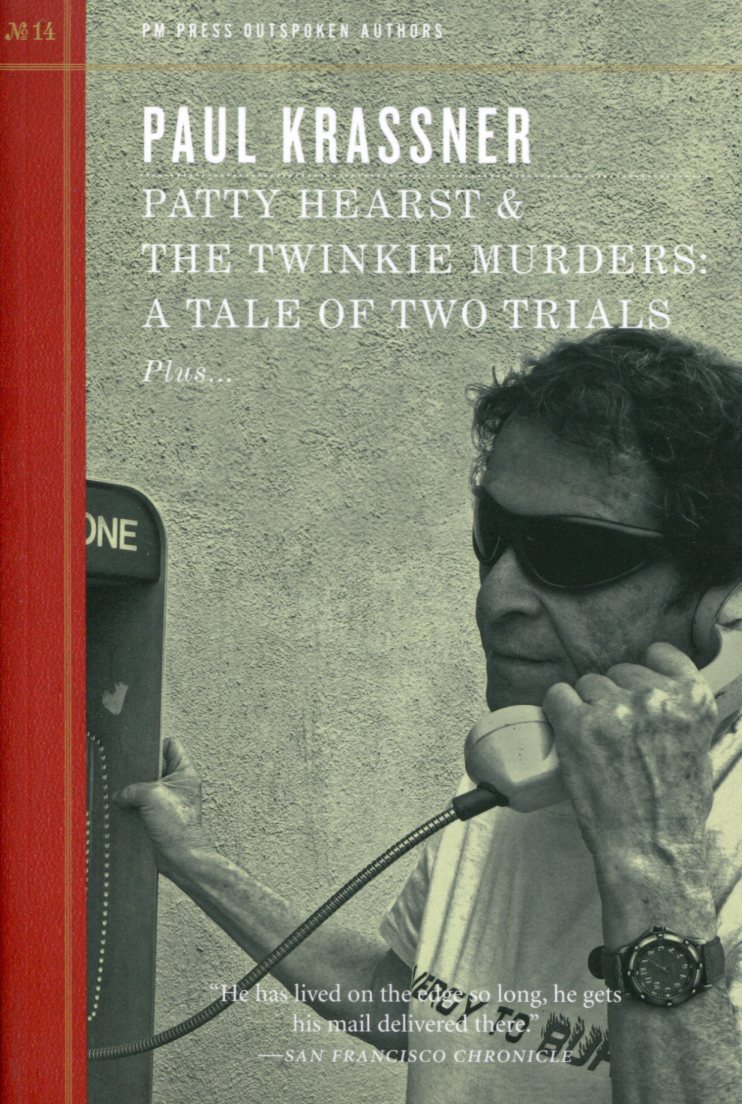
Patty Hearst & The Twinkie Murders is a darkly satiric take on two of the most famous cases of our era: the kidnapping of heiress Patty Hearst, and the shocking assassination of San Francisco Mayor George Moscone and gay leader Harvey Milk. As a reporter for the Berkeley Barb, Paul Krassner was ringside at the spectacular California trials. Krassner's deadpan, hilarious style captures the nightmare reality behind the absurdities of the courtroom circus. Using his infamous satiric pen and investigative chops, Krassner gets to the truth behind the events: the role of the police and FBI, the real deal with Patty and the SLA, and what really happened in Patty’s infamous closet. Plus: A merciless exposé of the "Taliban" wing of the gay movement and their scandalous attacks on alt-rock star Michelle Shocked. Also featured is our Outspoken Interview, an irreverent and fascinating romp through the secret history of America's radical underground. Names will be named. Praise: “Krassner is an expert at ferreting out hypocrisy and absurdism from the more solemn crannies of American culture.” —New York Times “Krassner has the uncanny ability to alter your perceptions permanently.”—Los Angeles Times “Krassner not only attacks establishment values; he attacks decency in general.” —Harry Reasoner, ABC News “The FBI was right—this man is dangerous—and funny, and necessary.”—George Carlin “As soon as we decided to create the Huffington Post, I knew I wanted Paul Krassner involved.”—Arianna Huffington About the Author: Creator of the Realist, the legendary underground magazine that many credit as the beginning of the radical "new journalism" of the 1960s, Paul Krassner is an immortal, immoral, revered, and reviled icon of American humor. Wielding satire as a weapon, he began the assault on middle America known today as the "counterculture" and is still a hero to radicals and a menace to the establishment. He now lives near Palm Springs disguised as an old man. Product Details: Author: Paul KrassnerPublisher: PM Press/Outspoken AuthorsISBN: 978-1-629630-38-0Published: 10/01/2014Format: PaperbackSize: 7.5x5.5Page count: 128 Subjects: Satire/History-US

Brest-Litovsk, 1917 and 1939 "If the Russian Revolution becomes the signal for a proletarian revolution in the West, so that both complement each other, the present Russian common ownership of land may serve as the starting point for a communist development." Marx/Engels - Preface to the Russian edition of the manifesto, 1882. This perspective was not realized. The European industrial proletariat missed its rendez-vous with a revitalized Russian peasant commune. Brest-Litovsk, Poland, December 1917: the Bolsheviks propose peace without annexations to a Germany intent on taking over a large swath of the old Tsarist empire, stretching from Finland to the Caucusus. But in February 1918, the German soldiers, "proletarians in uniform" though they were, obey their officers and resume the offensive against a Russia still ruled by soviets. No fraternization occurs, and the revolutionary war advocated by the Bolshevik left proves impossible. In March, Trotsky has to sign a peace treaty dictated by the Kaiser's generals. "We're trading space for time", as Lenin put it, and in fact, in November, the German defeat turns the treaty into a scrap of paper. Nevertheless, practical proof of the international link-up of the exploited had failed to materialize. A few months later, returning to civilian life with the war's end, these same proletarians confront the alliance of the official workers' movement and the Freikorps. Defeat follows defeat: in Berlin, Bavaria and then in Hungary in 1919; the Red Army of the Ruhr in 1920; the March Action in 1921... September 1939. Hitler and Stalin have just carved up Poland. At the border bridge of Brest-Litovsk, several hundred members of the KPD, refugees in the USSR subsequently arrested as "counter-revolutionaries" or "fascists", are taken from Stalinist prisons and handed over to the Gestapo. 1917-1937, twenty years that shook the world. The succession of horrors represented by fascism, then by World War II and the subsequent upheavals, are the effect of a gigantic social crisis opening with the mutinies of 1917 and closed by the Spanish Civil War*. *This is a shorter, entirely reconceived version of the preface to the collection Bilan/Contre-révolution en Espagne 1936-1939, Paris, 1979 (now out of print). A text in progress will deal further with the question of the development of fascism, and thus of anti-fascism, in our own epoch.

What is meant and what do we mean by "communisation" ? Actually, we have often dealt with this theme, for instance in our answers to the German group Revolution Times' questionnaire, published in English as What's It All About ? (2007), and in other texts, including A Contribution to the Critique of Political Autonomy (2008)

In the Golden Age of 'actually non-existing socialism' journeys were organised to the countries of the radiant future. Believers were then invited to express their enthusiasm for a reality staged by the lords of the manor. In this way people visited the soviet socialism of the USSR, the Maoist socialism of China, the miniature socialism of Albania, the bearded socialism of Cuba, the Sandinista socialism of Nicaragua, etc. Woe betide those who contested the objective, scientific and unquestionable character of these fabricated realities. Until the day these systems collapsed. People thought they had seen but had seen nothing! Were lessons drawn from this? It would seem not! With a smile slung over their shoulder, people today again go off "to do revolutionary Chiapas" in convoys organised by fellow travellers of the Zapatistas. On a well-signed route, people have to agree to see only what they have to see and to believe in the leader's words. The irrefutable argument hasn't changed one iota: because the imperialist forces are threatening and the people are defence-less, we can only put our trust in commanders. In a world in crisis the demands for the future are revised downwards! People make themselves the advocates of realism - they give in to the essential and side with new oppressive projects. The groups of revolutionary tourists, seduced by the exoticism of the unique Indian culture 2, are incapable of giving out any information or direct account of what is happening in the Mexican countryside: about the occupations, the forms of organisation chosen by the peasants in struggle, their objectives and political perspectives. They are also incapable of expressing the slightest critical element which could enable us to deepen our knowledge of the avant-garde organisation running the armed struggle. Was it simply the evocation of Zapata's name and the memory of a "Mexico Above the Volcano" which was enough to mobilise people? How come they can throw themselves naively in support of a movement which is a vehicle for the values of ethnic identity and patriotism, which are nowadays at the heart of the most barbaric tendencies in the world? Those who have more radical pretensions about the world can only justify their solidarity with this Zapatista army of national liberation in the name of the tactics of circumstance. It's in this way that, in the name of tactical support, people consider as acceptable for others what is unacceptable for themselves! Rather than let the charms of the balaclavaed Saviour lull us to sleep, wouldn't it have been better to analyse what is new in this type of old organisation?

‘Rocker’s vision remains as inspiring as when it was written ... and no less valid as a stimulus to our thinking and our constructive action.’ Noam Chomsky (from the Preface)Rudolf Rocker’s classic survey of anarcho-syndicalism was written during the Spanish Civil War to explain to the wider reading public the ideology which inspired the social revolution in Spain. It remains unsurpassed as a general introduction to anarchist thought and an authoritative account of the early history of international anarchism by one of the movement’s leading figures.The present edition is unique in giving a complete facsimile reproduction of the 1938 edition as well as the corrected transcript of the epilogue to the Indian edition of 1947. It has the addition of a new biographical introduction by Nicolas Walter, in which he quotes from previously unpublished manuscript sources. About The Author Rudolf Rocker (1873–1958) was a leading figure in the international anarchist movement. Politically active in Britain, Germany and the United States for more than half a century, Rocker helped found several influential anarchist groups. His prolific lectures and writings made him one of the best-known proponents of liberty and freedom. Anarcho-Syndicalism, the most accessible of his works, was first published in 1938 and is now regarded as a classic survey of anarchism at a critical point in world politics. Preface - Noam ChomskyIntroduction - Nicolas Walter1. Anarchism2. The Proletariat and the Beginning of the Modern Labour Movement3. The Forerunners of Syndicalism4. The Objectives of Anarcho-Syndicalsim5. The Methods of Anarcho-Syndicalism6. The Evolution of Anarcho-Syndicalism BibliographyEpilogue
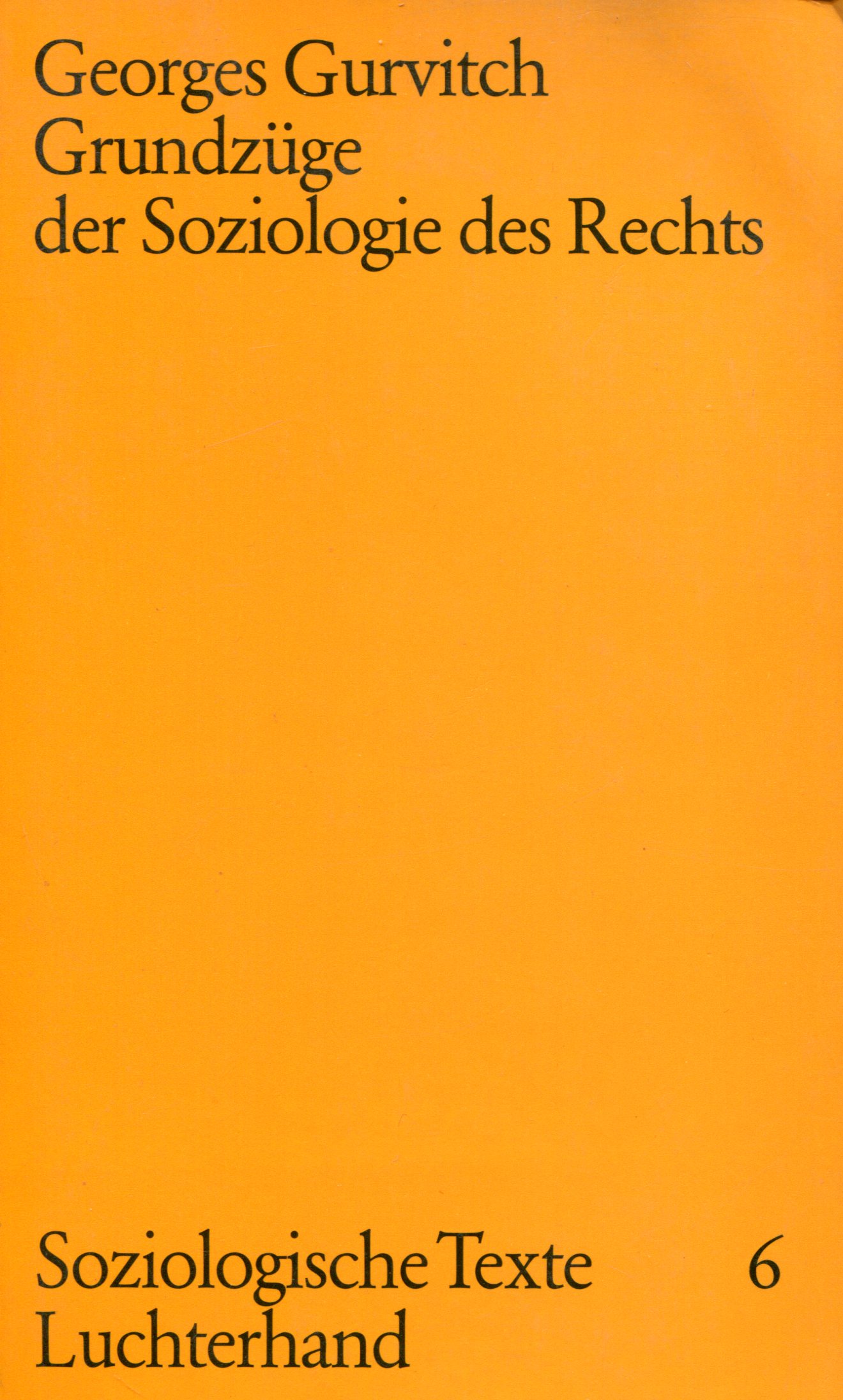
2. Auflage von 1974, guter Zst.

349 | Logistik Leidbranche der Globalisierung Millionen LKWs, Schiffe und Flugzeuge transportieren Gigatonnen von Gütern durch die Welt. Sie verbinden Produktionsschritte untereinander, bringen Rohstoffe zur Weiterverarbeitung oder liefern Fertigwaren zur Endkonsumentin. Die Logistikbranche ist ein Spiegelbild der Globalisierung und der komplexer werdenden Produktionsketten. Sie ist heute einer der größten Wirtschaftsbereiche überhaupt, ein Arbeitssektor für Hochqualifizierte und prekär Beschäftigte. Zudem: ein relevanter Faktor beim Klimawandel. In unserem Themenschwerpunkt wollen wir nicht zuletzt die soziale Frage hinter der technisch-ökonomischen Fassade des Sektors Transport & Logistik herausarbeiten. . Inhaltsübersicht Hefteditorial Schwerpunkt: Logistik Editorial zum Themenschwerpunkt Arterien des KapitalismusDer Fluss von Gütern schafft Konkurrenz statt Ausgleichvon Winfried Rust Grenzzonen im ContainerhafenDer Hafen Freetown/Sierra Leone im neuen -Logistikregimevon Julian Stenmanns Freie Fahrt für SchiffsbetreiberContainerschiffe sind günstig – auf Kosten anderervon Christoph Spehr Made in China?Warenströme in der globalen Elektronikindustrievon Peter Pawlicki »Wir haben uns lautlos organisiert«Gewerkschaftsgründungen bei DHL im post-diktatorischen Chilevon Olaf Berg und Helen Schwenken Reibungslos bewegtPipelines sind das Adernsystem der fossilen Modernevon Benjamin Steininger Politik und Ökonomie China: Überstunden für die StaatssicherheitEin neues Gesetz soll nun auch ausländische NGOs gängelnvon Dirk Reetlandt Algerien: Aufruhr nur im HinterlandIslamistische Strömungen haben einen schweren Standvon Bernard Schmid Erinnerungspolitik: Zeigefinger in Richtung TürkeiDeutsche und französische Vergangenheitspolitiken zum Armeniengenozidvon Anna Laiß Mexiko: Gute grüne GeschäfteProjekte erneuerbarer Energien führen zu sozialen Konfliktenvon Rosa Lehmann Südafrika: Mit Vollgas in die Sackgasse?Fracking bedeutet für Südafrika viele Risikenvon Sören Scholvin, David Fig und Stefan Andreasson Rassismus: Zeitgemäß rückwärts gewandtPEGIDAs Rassismus ohne »Rassen«von Martin Bodenstein Kultur und Debatte Musik: »Sie nennen mich La Queen«Sexismus und Feminismus in der HipHop-Familie Dakarsvon Sarah Böger Design I: Making AfricaEine ambitionierte Ausstellung über afrikanisches Designvon Paul Sutter und Felix Hoerz Design II: Schaut auf diese StädteDie Architektur der Unabhängigkeit in afrikanischen Ländernvon Katja Behrens Comic: »Laufen, rennen, klettern«Graphic Novels aus Ägypten, dem Libanon und dem Iranvon Vanessa Guinan-Bank Film: Stumm werdenDer kamerunische Spielfilm Ninah’s Dowry über häusliche Gewaltvon Martina Backes Rezensionen
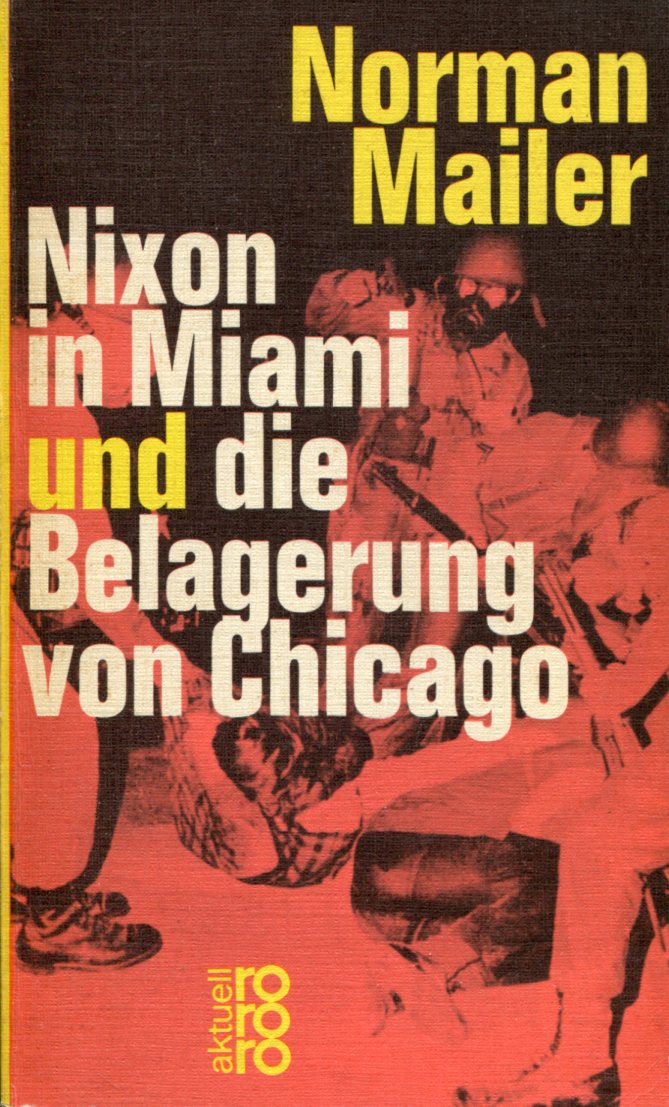
Papier gebräunt, sonst gut.

guter zst.
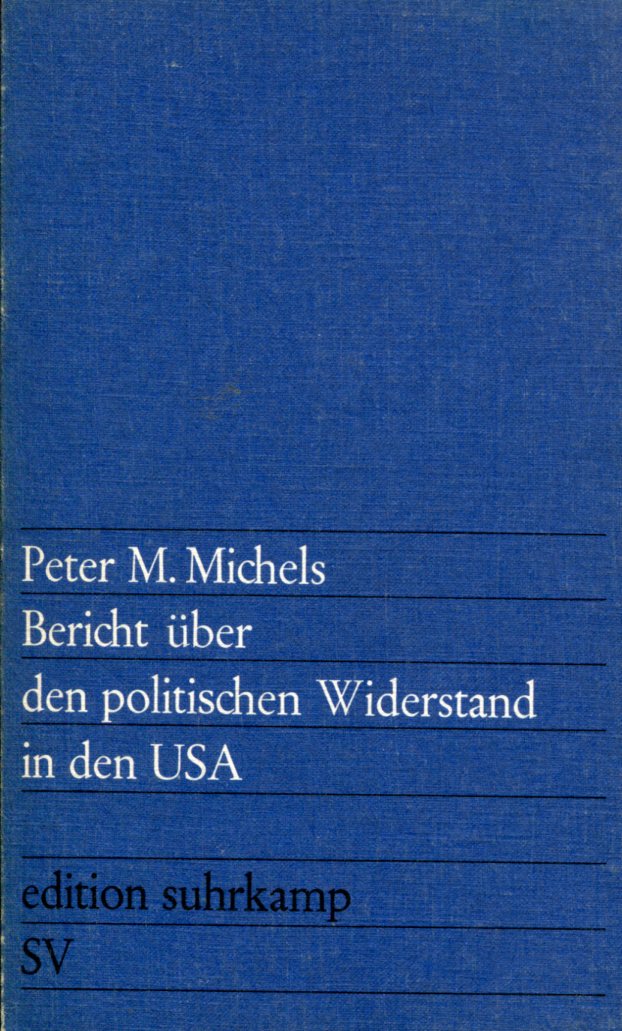
Guter bis sehr guter Zustand.
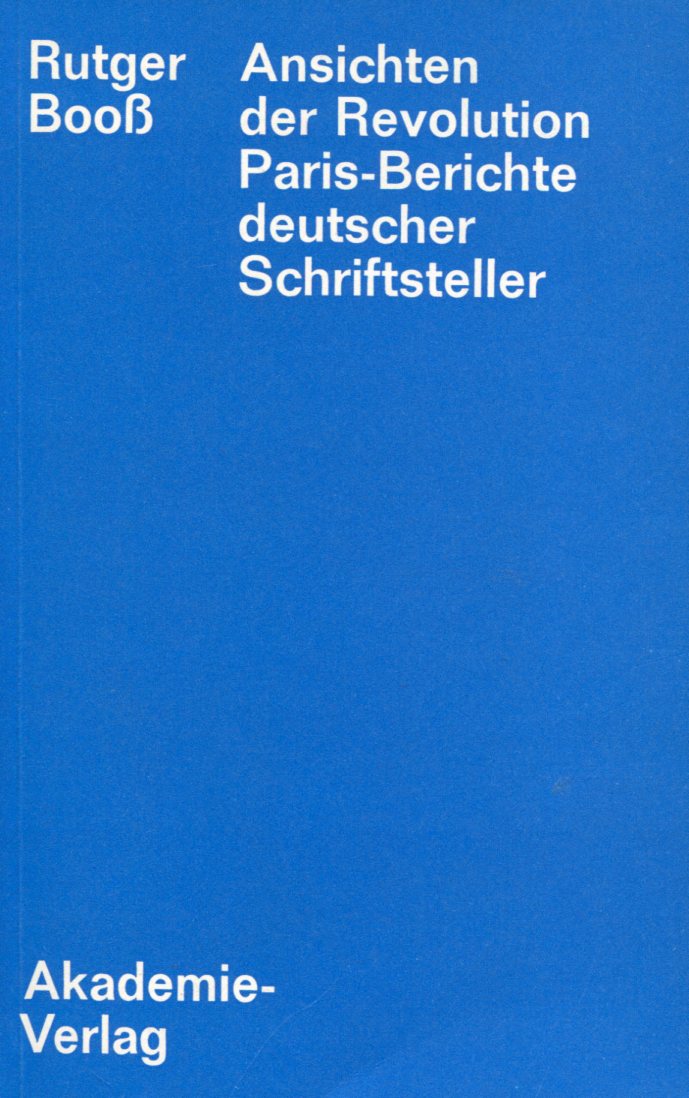
Sehr guter Zustand

Sehr guter Zustand

Akzeptabel bis gut

Es ist, als ob man vergebens aus nächster Nähe zu betrachten suchte, was in weitester Ferne liegt – und dennoch nur scheinbar ein Jenseitiges ist. Etwas unreglementiert erfahren: ist das überhaupt möglich? Die in diesem Band versammelten Beiträge widmen sich der Bestimmung eines Begriffs, der in der kritischen Theorie Adornos einen zentralen, wenngleich nie ausdrücklich benannten Platz einnimmt. In der zahlreich vorhandenen Literatur zu Adorno wird unreglementierte Erfahrung, wenn überhaupt, als ein nur subjektives Phänomen oder gar als ein dem wissenschaftlichen Objektivismus entgegengesetzter Ausdruck individuellen Leids aufgefaßt. Wie hier gezeigt werden soll, geht es allerdings bei der unreglementierten Erfahrung ums Ganze, um nichts weniger als die Möglichkeit von Emanzipation schlechthin. Inhalt: Devi Dumbadze, Christoph Hesse: Einleitung Gerhard Scheit: Erfahrung und jüngstes Gericht. Eine Anmerkung zum verborgenen Freiheitsbegriff der Kritischen Theorie Dirk Braunstein: Die Erfahrung der Gesellschaft. Grundsätzliches zur philosophischen Erkenntnis Simon Duckheim: Alles ganz anders. Adornos Utopie der Erkenntnis am Beispiel Prousts Devi Dumbadze: ”Religion, IST“. Ideologie und unreglementierte Erfahrung Isabelle Klasen: ”Erfahrung wider das Ich“. Überlegungen zu einem Schönen nach Adorno Irene Lehmann: Die möglichen Unendlichkeiten des Unverständlichen und die Formen der Kritik. Luigi Nono und das engagierte Kunstwerk Christoph Hesse: Virtuelle Erfahrung Fabian Kettner: Eine nutzlose Erfahrung. Der Tod als Instanz unreglementierter Erfahrung Die Autoren

Namensvermerk, Papier nachgedunkelt, sonst gut


